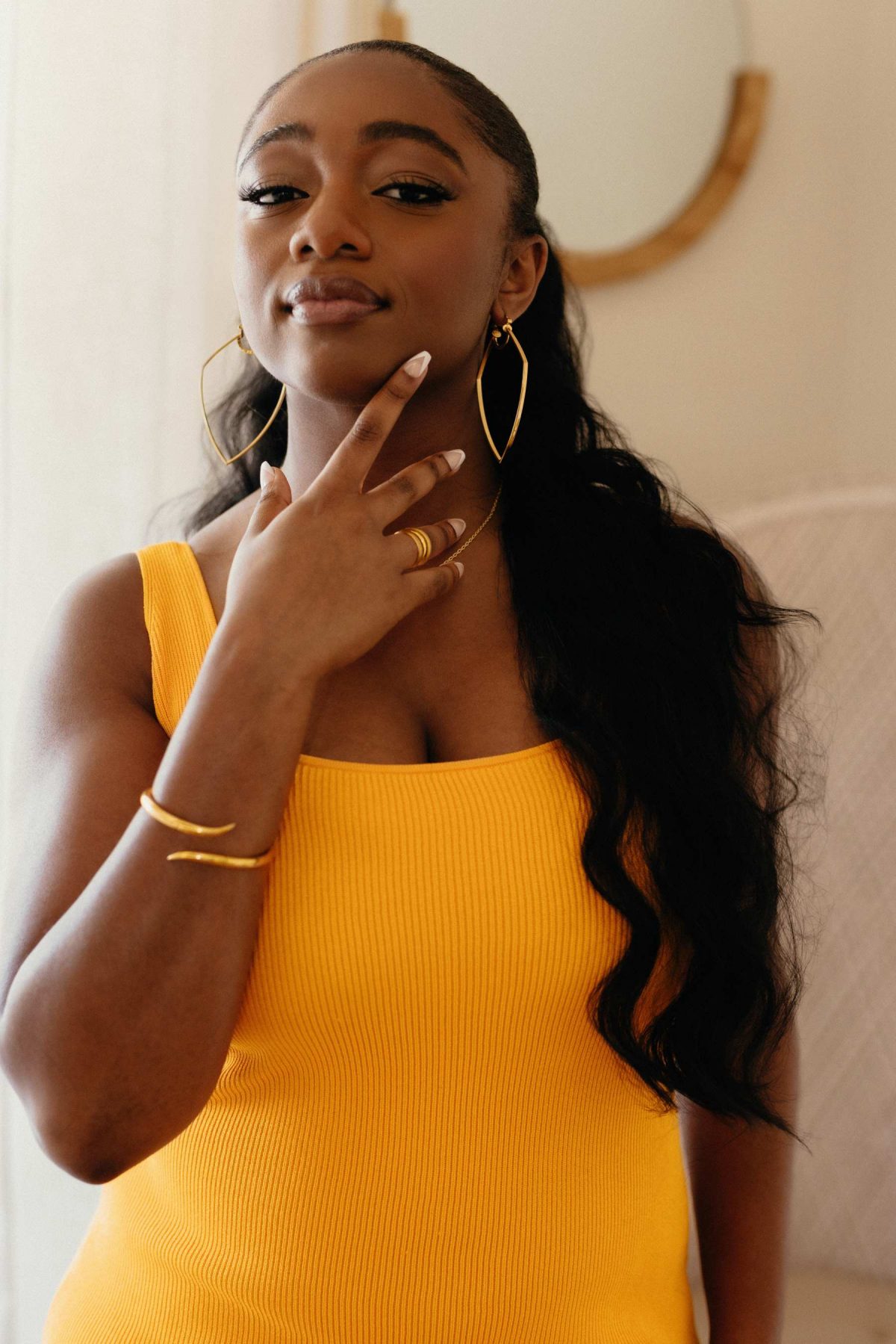For lovers of classic jazz, witnessing the ascendance of Samara Joy has been a great … well, joy. Having been born in the last few weeks of the 20th Century, one might expect her to be mining the same vein as Adele or other pop stars, and yet she is that rare 24-year-old who’s devoted mostly to jazz, and not only that, but jazz standards written nearly a century ago like “Someone to Watch Over Me.” And, as her three Grammy Awards suggest, she brings a natural talent and interpretive verve to the material: a breath of fresh air indeed.
That’s why this Monday, June 3rd is a great day for jazz aficionados in Memphis, as Joy will be appearing at the Cannon Center for the Performing Arts then, thanks to Cultural Arts for Everyone. (Click here for tickets.)
Anticipating her appearance, the Memphis Flyer reached out to Joy via email to explore her thoughts on her musical upbringing, her love of jazz, and what Memphis means to her. Read on for a most enlightening interview.
Memphis Flyer: Your life in music echoes something often seen in Memphis: the musical family, strongly rooted in the church. Your grandparents co-founded the Philadelphia gospel group The Savettes, and your father is a professional gospel vocalist and bass player. What did you learn from your family that still informs your artistry today?
Samara Joy: I learned that performance, for me, is about connecting people to something greater than one can put into words. I can try to do a million cool things with my voice but, when I’m presenting music, the goal is to encourage people to feel and understand that, at the end of the day, there are life experiences and emotions that we all experience. Therefore, we’re all connected in more ways than we might think. Music is a great aid in realizing this connection, which is why I love singing for people.
Assuming you sang a lot of gospel music in your youth, did that prepare you well for jazz singing or was there a learning curve ? How did you came to embrace classic jazz to such a degree?
There was definitely a learning curve and it took a while for my voice to catch up to what I was hearing. But I think gospel prepared me to listen with intent. I didn’t have any knowledge of what jazz sounded like and in order to feel confident enough to sing it, I had to put it in my ears. Listening to gospel music growing up and trying to imitate other singers helped me to develop my ear for detail and I’m grateful for that musical influence.
I came to embrace jazz simply by listening to it. Because the genre was so new to me, I listened with open ears and allowed myself to be immersed in the sound of the artists who created it. As a result, my love for it grew stronger and I was able to use my voice in an entirely new way.
Should we look for more music from you in the vein of your latest single from the Netflix film Shirley, “Why I’m Here,” a song which is “pop” but also seems closer to contemporary gospel?
That was a special song for an incredibly important story and movie about Shirley Chisholm. My focus for my own music, as of now, is still jazz. What I love about jazz is the fact that even though I feel at home within the genre, I am also constantly being challenged to grow.
What specific thoughts or associations do you have about Memphis, whether it’s the jazz players from here, the gospel tradition here, or any soul/R&B artists from here?
One of the first documentaries I ever encountered was Wattstax (1973), which was a concert sponsored by Stax Records at the Watts Summer Festival. I was blown away by this footage of a completely different time in music and culture. Seeing the crowd’s response to Memphis artists like Rufus Thomas and Isaac Hayes was inspiring to watch and I’ve seen the film multiple times. That being said, I can’t wait to perform in Memphis!
